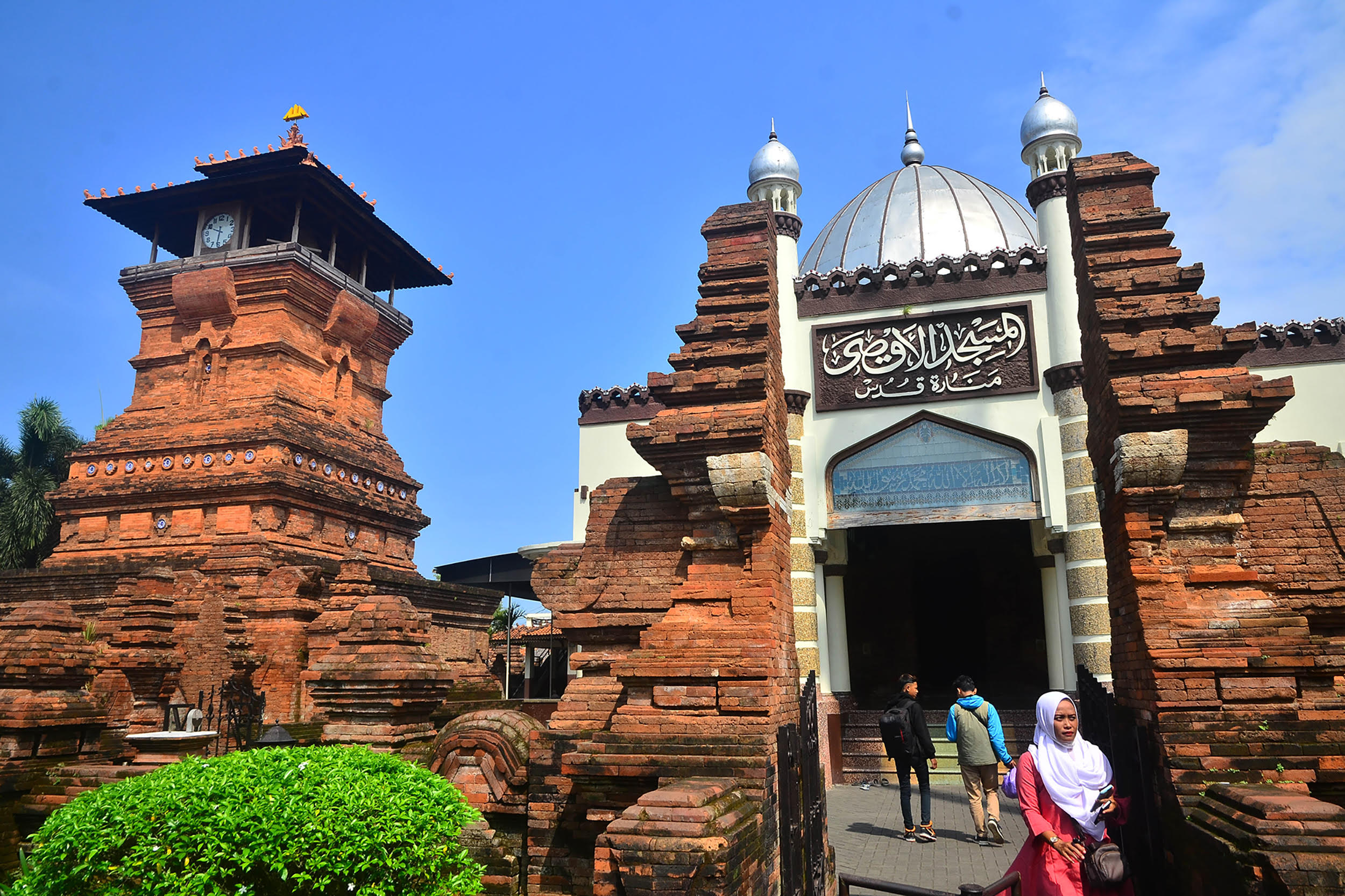How Islamic Tradition Benefits Nature and Climate Change Action
Main Article Content
Abstract
This paper explores the contribution of Islamic tradition and teachings in Southeast Asia, particularly in Indonesia, to benefit nature and climate change action. Indonesian Muslims follow the idea of Islamic jurisprudence (fiqh) based on the Imam Syafi’i school of thought, whose principles are practiced in daily life and provide many positive teachings on nature as God’s creation. Humans are regarded as the khilafah fil al ard, stewards of the earth, and the Qur’an teaches that God has created everything in the heavens and on earth as ayat, the sign of God. In Indonesia, organizations and scholars have explored the potential of Islamic teachings for climate action in the form of fatwas (verdicts) and for awakening the people’s awareness of climate change through religious lectures. Government officials and green activists have worked in partnership with the Ulama Council of Indonesia, Muslim leaders, and communities to issue important fatwas on certain issues including forest burning and the protection of wildlife. The Islamic principles of charity and finance, such as zakat, infaq, shadaqah and waqf as well as green sukuk (Islamic bonds), are also beginning to be mobilized for climate change action, including forest conservation. A Sumatra tradition of lubuk larangan has been applied to managing river environments. These examples show the potential of Islamic teaching to promote values important for combatting the climate crisis.
Article Details
References
Bagader, A. A., El Chirazi El Sabbagh, A. T., As Sayyid Al Glayand, M., Izzi Deen Samarrai, M. Y., and Abd Ar Rahman Llewellyn, O. A. 1994. La protection de l’environnement en Islam. Environmental protection in Islam. Environmental Policy and Law Paper (IUCN), 20. https://vertmondeong.com/ressource/uploads/45/LaProtectionEnvironnementEnIslam.pdf
Carson, Rachel. 1962. Silent Spring. Boston: Houghton Mifflin.
CNN Indonesia. 2015. “BNPB: Kebakaran Hutan 2015 Seluas 32 Wilayah DKI Jakarta” selengkapnya di sini: https://www.cnnindonesia.com/nasional/20151030133801-20-88437/bnpb-kebakaran-hutan-2015-seluas-32-wilayah-dki-jakarta.
Efendi, Satria and M. Zein. 2015. Ushul Fiqh. Jakarta: Grafindo Persada.
Fitrah, R., and A. Soemitra. 2022. “Green Sukuk for Sustainable Development Goals in Indonesia: A Literature Study.” Jurnal Ilmiah Ekonomi Islam, 8, 1: 231–240. https://jurnal.stie-aas.ac.id/index.php/jie
Islamic Finance Council (IFC) and UNDP. 2021. Innovation in Islamic Finance: Green Sukuk for SDGs. UNDP. https://www.ukifc.com/wp-content/uploads/2021/09/UKIFC21_Green_Sukuk_v1-2_20210927.pdf
Jamil, S. 2021. “Halal Wastewater Recycling: Environmental Solution or Religious Complication?” In J. Koehrsen, J. Blanc, and F. Huber (eds.), Global Religious Environmental Activism: Emerging Conflicts and Tensions in Earth Stewardship, London: Routledge.
Khalid, Fazlun M. 2019. Signs on the Earth: Islam, Modernity and the Climate Crisis. London: Kube Publishing.
Koehrsen, J. 2021. “Muslims and Climate Change: How Islam, Muslim Organizations, and Religious Leaders Influence Climate Change Perceptions and Mitigation Activities.” Wiley Interdisciplinary Reviews: Climate Change, 12, 3. https://wires.onlinelibrary.wiley.com/doi/full/10.1002/wcc.702
Kementerian Keuangan RI [Ministry of Finance Republic of Indonesia]. 2020. Studi Mengenai Sukuk Ritel di Indonesia. Penerbit: Direktorat Jenderal Pengelolaan Pembiayaan dan Risiko. Jakarta: Kementerian Keuangan.
Llewellyn, O. A. 2003. “The Basis for a Discipline of Islamic Environmental Law.” In Richard C. Foltz (ed), Islam and Ecology: A Bestowed Trust, Cambridge, MA: Center for the Study of World Religions, Harvard Divinity School, pp. 185-247.
Luck, N. 2021. “Transformation towards a more sustainable agricultural system in Indonesia: Empirical essays on the role of information and endorsement.” Dissertation zur Erlangung des akademischen Grades des Doktors der Wirtschaftswissenschaften (Dr. rer. pol.) an der Universität Passau.
Mangunjaya, F. M. 2011. “Developing Environmental and Conservation Awareness through Islamic Teaching.” Oxford Journal of Islamic Studies, 22, 1: 36-49; https://doi.org/10.1093/jis/etq067
Mangunjaya, F. M. and Y. Dinata. 2017. “Ecosystem Faith-Based Protection in Sumatra, Case Study for Minangkabau Tradition.” Paper presented at the Fourth Workshop of IUCN/WCPA Specialist Group on Cultural and Spiritual Values of Protected Areas, held in the Franciscan Retreat House of Porziuncola – Baħar iċ-Ċagħaq, Malta, 23-28 April 2017.
Mangunjaya, F. M and G. Praharawati. 2019. “Fatwas on Boosting for Environmental Conservation in Indonesia. Special Edition on Religion and Environmental Activism in Asia.” Religions 2019, 10, 10: 570; https://doi.org/10.3390/rel10100570
Mangunjaya, F. M., and I. Ozdemir. 2022. “Sustainability and Communities of Faith: Islam and Environmentalism in Indonesia.” In Mochamad Indrawan, Jeffrey B. Luzar, Helen Hanna, and Theodore Mayer (eds), Civic Engagement in Asia: Transformative Learning for a Sustainable Future, Singapore: Springer, pp. 221-229.
Mangunjaya, F. M., and Elizabeth McKay. 2012. “Reviving an Islamic Approach for Environmental Conservation in Indonesia.” Worldviews: Global Religions, Culture, and Ecology, 16, 3: 286-305. doi: https://doi.org/10.1163/15685357-01603006
Mangunjaya, F. M., A. Aadrean, Y. Yarni, and P. Gugah. 2022. Pengakuan dan Penguatan Lubuk Larangan Sebagai Kawasan Konsevasi Tradisional. Policy Brief. Universitas Nasional. Center for Islamic Studies. http://ppi.unas.ac.id/wp-content/uploads/2023/04/FINAL_Policy-Brief-Final-Lubuk-Larangan.pdf
Praharawati, G., F. M. Mangunjaya, H. M. Saragih, A. Y. Firdaus, T. M. Mulyana, F. Ilmi, M. Zulham, H. Gunawan, S. Utama, and E. Sinaga. 2021. “A Model of Religious Moral Approach for Peatland Ecosystem Restoration in Indonesia.” Jurnal Manajemen Hutan Tropika, 27, 2; https://doi.org/10.7226/jtfm.27.2.132https://journal.ipb.ac.id/index.php/jmht/article/view/33491
UNDP. 2021. Indonesia Green Bond and Green Sukuk Initiative. https://climatepromise.undp.org/sites/default/files/research_report_document/undp-ndcsp-green-sukuk-share.pdf
UNDP (United Nations Development Programme) and BWI (Badan Wakaf Indonesia). 2022. Green Waqf Framework. Jakarta.
Wilson, Edward O. 2006. “Bridging Science and Religion.” NPR, Talk of the Nation, 8 September. https://www.npr.org/templates/story/story.php?storyId=5788810


